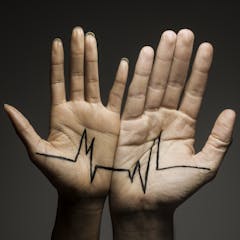
Articles on Racial health disparities
Displaying 1 - 20 of 28 articles

Early modern societies in Latin America and Spain saw a convergence of traditional medical knowledge and the professionalization of medicine. The resulting differences in access to care endure today.

People with low-risk prostate cancer are more likely to die from something else. Overdiagnosis and overtreatment can lead to life-changing complications.

While medical school may teach students about how the body works, it often neglects the social, political and cultural factors that determine health and disease. The humanities can help.

Two-thirds of new HIV infections are among gay and bisexual men. Although cases have decreased among white men, they have stagnated among communities of color.

Prostate cancer is one of the most common cancers in men. Although watchful waiting is appropriate for low-risk cases, many are diagnosed at an advanced stage because of racial health disparities.

Even with laws to protect a woman’s right to have an abortion, Black women found it hard to find access to reproductive health care. It’s only gotten worse since Roe v. Wade was overturned.

Biased algorithms in health care can lead to inaccurate diagnoses and delayed treatment. Deciding which variables to include to achieve fair health outcomes depends on how you approach fairness.

Chronic stress from living with systemic racism and gun violence can lead to increased symptoms of PTSD and depression as well as elevated cortisol levels.

Men, older adults, people with language barriers and racial and ethnic minorities are less likely to be screened for depression.

The term ‘MSM’ allows public health interventions to gloss over the social, political and cultural complexities of identity. But it’s not without its limitations.

Judge Reed O'Connor ruled in a case that coverage for HIV prevention medicine PrEP violated the religious freedom of the plaintiffs. It is unclear whether the order will extend nationwide.

Overcoming the access barriers and biases that underrepresented and underserved communities face could not only improve research participation but also improve care.

OTC hearing aids promise to increase the accessibility and affordability of the devices for millions of adults who live with untreated mild to moderate hearing loss.

While sunscreen has the potential to reduce skin cancer for light-skinned people, it has never been shown to do the same for Black people. Yet that distinction is lacking in public health messaging.

Early detection of breast cancer is critical to improving chances of survival. But racial and ethnic minority patients systematically have delayed diagnoses that reduce the benefits of screening.

Being both trans and a person of color comes with a unique set of challenges. Collectively working toward overcoming these barriers is one way this community fights for survival.

During the pandemic, health care providers began prescribing abortion pills without requiring in-person exams. This practice could help people access the care they need when abortion rights are in limbo.

Only 3.7% of people in the U.S. with hearing difficulty own hearing aids. Thanks to a federal law in progress of being implemented, OTC hearing aids may help bridge the gap.

Microaggressions are more subtle than outright discrimination. But they can directly affect HIV treatment outcomes.

Researchers had suspected that chemical hair relaxers might be behind racial disparities in breast cancer diagnoses. A new study narrows in on lye as a possible cause for that link.





